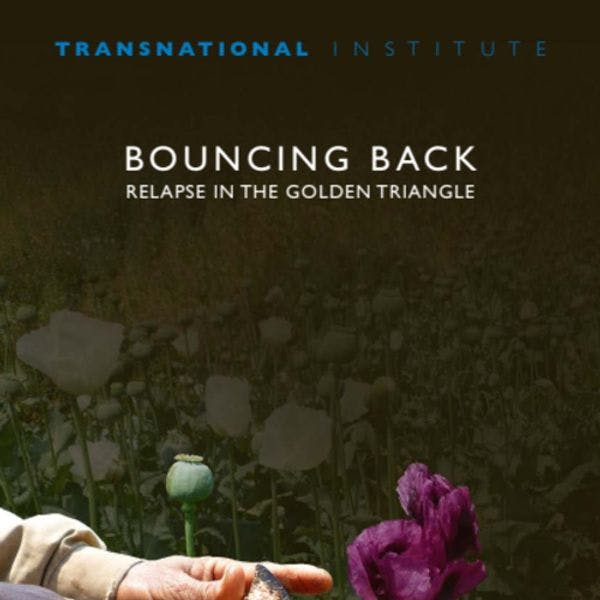Efecto rebote: recaída en el Triángulo de Oro
La aspiración de una ASEAN libre de drogas para el año 2015 no es realista y los objetivos y recursos normativos deberían reorientarse hacia una estrategia de reducción de daños que permita gestionar –en vez de eliminar– el mercado ilícito de drogas de la forma menos perjudicial posible. Más información, en inglés, está disponible abajo.
Suscríbase a las Alertas mensuales del IDPC para recibir información sobre cuestiones relacionadas con políticas sobre drogas.
The illicit drug market in the Golden Triangle – Burma, Thailand and Laos – and in neighbouring India and China has undergone profound changes. This report documents those changes in great detail, based on information gathered on the ground in difficult circumstances by a group of dedicated local researchers. After a decade of decline, opium cultivation has doubled again and there has also been a rise in the production and consumption of ATS – especially methamphetamines. Drug control agencies are under constant pressure to apply policies based on the unachievable goal to make the region drug free by 2015.
This report argues for drug policy changes towards a focus on health, development, peace building and human rights. Reforms to decriminalise the most vulnerable people involved could make the region’s drug policies far more sustainable and cost-effective. Such measures should include abandoning disproportionate criminal sanctions, rescheduling mild substances, prioritising access to essential medicines, shifting resources from law enforcement to social services, alternative development and harm reduction, and providing evidence-based voluntary treatment services for those who need them.
The aspiration of a drug free ASEAN in 2015 is not realistic and the policy goals and resources should be redirected towards a harm reduction strategy for managing – instead of eliminating – the illicit drug market in the least harmful way. In view of all the evidence this report presents about the bouncing back of the opium economy and the expanding ATS market, plus all the negative consequences of the repressive drug control approaches applied so far, making any other choice would be irresponsible.
Keep up-to-date with drug policy developments by subscribing to the IDPC Monthly Alert.
